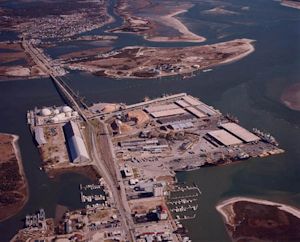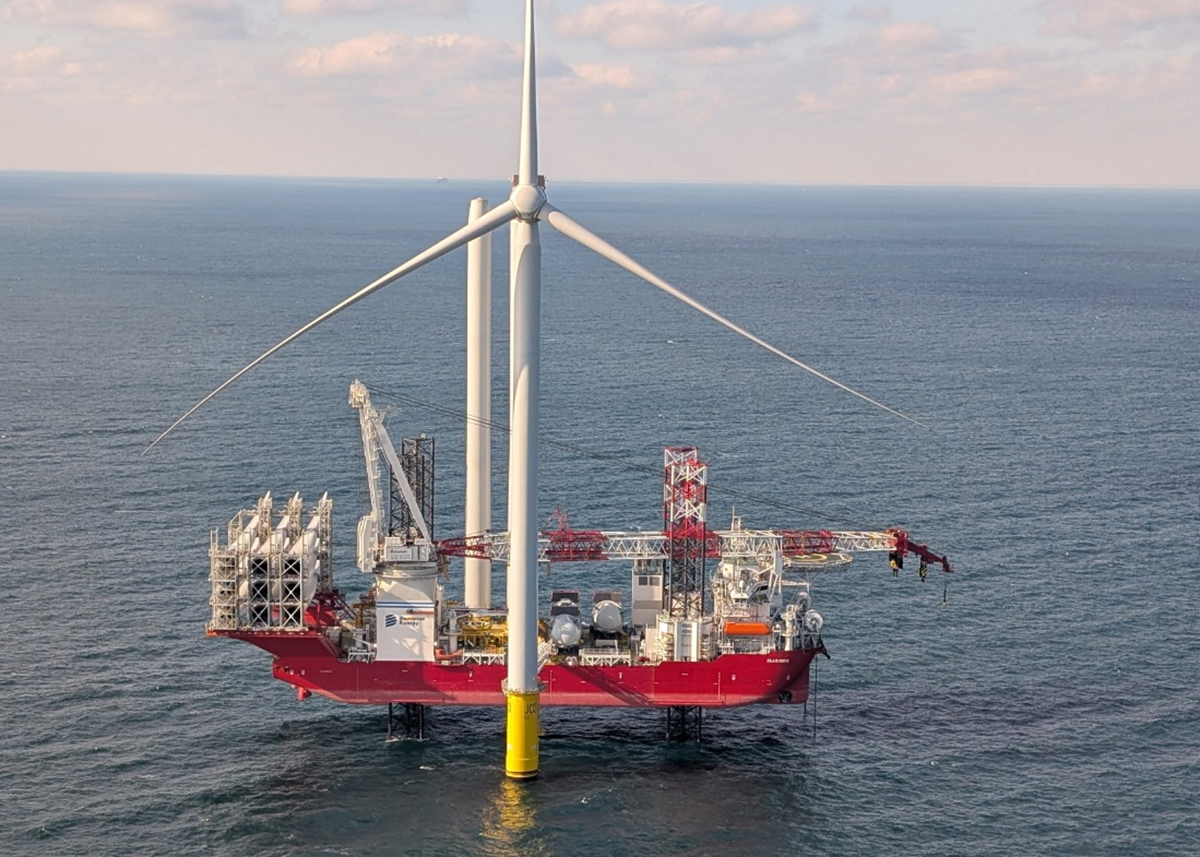MOREHEAD CITY — How does the N.C. State Ports Authority plan to pay for its proposed wood pellet storage facility in its port here?
It’s the multi-million dollar question that has yet to be answered in the days since the board of directors of N.C. Railroad Co. declined the authority’s request to provide $70 million in guaranteed funding over the next 10 years to support the project.
Supporter Spotlight
 Tom Bradshaw |
 Scott Saylor |
Tom Bradshaw, ports executive director, has said that the state does not have the estimated $60 million it will cost to build the proposed facility and that the ports cannot secure a low-interest loan.
Ports authority officials did not respond to queries about possible funding options, instead referring to a presentation Bradshaw made during an Oct. 30 public meeting with the Carteret County Board of Commissioners and Morehead City Town Council.
His presentation gives a brief, general overview of the Port of Morehead City and the potential economic benefits construction of a wood pellet storage facility would have in the region. There’s no mention of possible funding sources for the proposed project.
Ports officials met with the local boards less than two weeks after the railroad company’s board adopted a resolution Oct. 18 rejecting Bradshaw’s request to fund the project.
Scott Saylor, N.C. Railroad president, released a statement explaining the board’s decision was based on various reasons, including the company’s lack of legal authority to approve the request and the potential impact it would have on the company’s $83 million statewide capital improvement program. Also, the board believed there was “lack of sufficient” information on the project’s financial, environmental and regulatory reports.
Supporter Spotlight
Saylor said in a telephone interview that Bradshaw provided general economic development plans of the proposed project. But specifics, including where the timber would be cut, were not provided to the board.
“It was not clear which locations would be producing wood pellets within the state, which would affect the rail routing or trucking requirements into the ports,” Saylor said. “That would affect rail or other infrastructure which would be needed to service those businesses.”
The railroad stretches more than 300 miles between Charlotte and Morehead City. The company owns and manages the rail line.
N.C. Railroad is state-owned, but the company does not receive state money. It operates solely off of the money it makes from a long-term lease agreement with Norfolk Southern Corp., which moves a portion of its nationwide freight on the rail. The lease, which is renewable in 2029, generates about $12 million a year.
Each day, 60 freight trains and 10 passenger trains travel the railroad.
Whether board members will reconsider funding the proposed project is up to them, Saylor said.
“Our board will continue to follow the environmental and other implications of these projects if they were to move forward,” he said.
The ports authority’s funding request drew immediate concerns from two environmental groups – the N.C. Coastal Federation and Clean County Coalition – which are pursuing all public documents related to the proposed project through the public records law.
The Southern Environmental Law Center sent a letter Oct. 16 to Bradshaw urging ports officials to follow the environmental review of the project under the state’s Environmental Policy Act. The letter was also sent to Saylor and Eugene Conti, N.C. Department of Transportation secretary.
 The N.C. State Ports Authority wants to store wood pellets at its port in Morehead City for shipment to European power companies. Photo: N.C. State Ports Authority |
Geoff Gisler, a SELC attorney, said that his office received a letter from the ports authority Oct. 25 stating that they are in the process of gathering documents.
The public will have the opportunity to hear about the proposed project at a “community involvement meeting” hosted by the ports authority in December, according to the ports’ web site. The authority suggests checking its site “regularly for further updates.”
During his Oct. 30 presentation, Bradshaw stated that agri-business is the state’s biggest economy, generating $74 billion a year.
The Morehead City port exports woods chips and, as the demand for the commodity grows from European countries looking to burn less coal and reduce their carbon footprint, the state has an opportunity to increase revenue, authority officials say.
Preliminary plans call for the construction of a storage facility on the northeast corner of the main terminal that will hold up to 1 million tons of wood pellets a year with timber harvested from eastern North Carolina forests. This would reportedly create nearly 600 jobs and generate an estimated $14.8 million a year in revenue, according to Bradshaw’s Oct. 30 presentation.
Rail traffic through Morehead City would increase by no more than 75 cars in a single train and increase by about one extra train a day for five or six days a week, Bradshaw said at the meeting, according to the Jacksonville Daily News. The line between New Bern and Morehead City can handle one train at a time, he said.
He also said the ports authority and railroad will try to operate the trains at odd hours to prevent disrupting tourist traffic.
The ports authority hopes to begin shipping from a new wood pellet storage facility by January 2014.
Cogent Fibre, a Toronto-based company that exports pine wood chips exclusively through the Morehead City port and East Coast Terminals in Savannah, Ga., aided in the 2011 rehabilitation of the wood chip facility in Morehead City. The $1.5 million project was a joint venture between the company and marine contracting firm, Industrial Marine Services.
Cogent Fibre has been moving wood chips to the Port of Morehead City since April 2011 and has exported more than 4 million metric tons of pine wood chips from the U.S. east coast, according to the company’s web site.
Demand from such companies is expected to grow strongly during the next decade. The U.S. has moved ahead of Canada as the world leader of wood pellet exports during the first half of this year, shipping more than 1.5 million tons to Europe, according to a Wood Resources International report.
More than 80 pellet mills currently operate in the U.S., producing more than 1 million tons of pellets each year.







